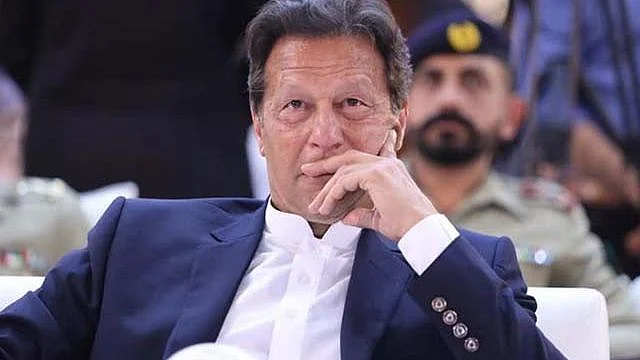Pakistan Prime Minister Imran Khan on Thursday, 7 April, announced that he had called a cabinet meeting on Friday and would also address the nation on the same day.
This came shortly after the Supreme Court of Pakistan unanimously ruled that the National Assembly Deputy Speaker Qasim Suri's rejection of the no-confidence motion against PM Khan was illegal, noting that it was contrary to the country's Constitution.
The court ruled in favour of restoring the National Assembly, and ordered a no-confidence vote against the prime minister on Saturday, 9 April. The vote will be held not later than 10:30 am.
Khan said on Twitter that he has also called for a meeting of his Pakistan Tehreek-e-Insaf (PTI) party's parliamentary committee.
“My message to our nation is I have always and will continue to fight for Pak till the last ball,” Khan tweeted.
What Did the Supreme Court Say?
The court, in its order, ruled that the deputy speaker's ruling was "contrary to the Constitution and the law and of no legal effect, and the same are hereby set aside".
Earlier, during the hearing, CJP Bandial said that the ruling of Deputy Speaker Suri was erroneous.
The Supreme Court noted that PM Khan could not have advised President Arif Alvi to dissolve the Assembly as he was under the bar imposed under clause (1) of Article 58 of the Constitution.
"It is further declared that the [National] Assembly was in existence at all times, and continues to remain and be so," the order read.
The court's verdict restored PM Khan and his Cabinet in their positions.
The top court also ruled that the National Assembly session on Saturday could not be adjourned until a vote was able to be held on the motion.
“The Speaker shall not, in exercise of his powers under clause (3) Article 54 of the Constitution, prorogue the Assembly and bring the Session to an end,” the ruling read.
It also added that if Khan is removed by the no-confidence motion, the new leader of the house needs to be elected in the same session.
What Has Happened So Far?
After weeks of political unrest, a no-confidence motion against Imran Khan’s government was disallowed by the National Assembly Speaker on Sunday, 3 April, citing a security threat.
Though the PM was not in attendance as the session began, after the dismissal, Khan addressed the citizens of Pakistan in a video and called for fresh elections and dissolution of the Assemblies.
Minutes later, President Alvi dissolved the National Assembly on the advice of PM Khan.
Following that, Khan was de-notified as the Prime Minister of Pakistan, but was allowed to continue as the prime minister for 15 days till the appointment of a caretaker prime minister.
(At The Quint, we question everything. Play an active role in shaping our journalism by becoming a member today.)
